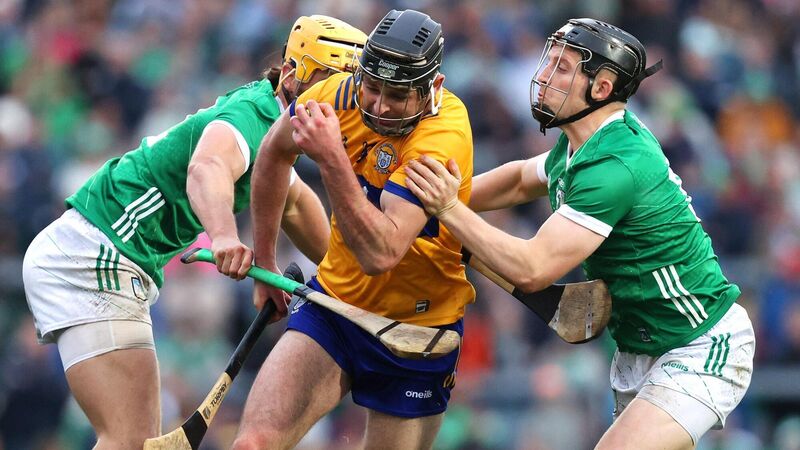John Fogarty: GAA must tread carefully in media world

EPIC: Clare’s Cathal Malone is tackled by Tom Morrissey and Peter Casey on Saturday evening in a game many feel should have been shown on RTÉ. Pic: INPHO/Bryan Keane
Former RTÉ midlands correspondent Ciarán Mullooly wasn’t holding back on Twitter on Saturday.
Frustrated by the Clare-Limerick Munster SHC game being streamed on the GAA and RTÉ’s joint subscription platform GAAGO, he lashed: “The game of the year in hurling so far and @RTÉsport are gone fishing. Tens of thousands of fans denied coverage. Scandalous tens of thousands of GAA fans have no access to this service.”








